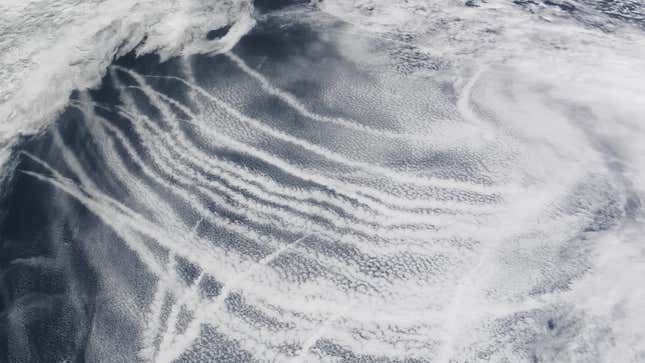
Every single day for the last year, North Atlantic sea surface temperatures have been reading new all-time highs. That is 365 consecutive days of record water temperature. That has to be bad, right? According to Earth.org, it means coral reefs are on the brink of a new mass bleaching event, important ecosystems are disappearing, excess carbon dioxide in the water can’t be re-absorbed, and bad storms and weather events will only continue to worsen. Things are — and this is a scientific term — real bad. The New York Times says scientists are freaking out about it. There are many causes, nearly all of them inflicted by humans.
Over the past year, average worldwide air temperatures have been 2.7 degrees Fahrenheit warmer than before the industrial age. That’s unequivocally down to the massive amount of fossil fuels humans have burned in the last couple hundred years. That global climate change and average temperature warming is accelerating, because the earth’s oceans are absorbing more and more of that heat.
An unintended side effect of cleaning up the air has been accelerating global warming effects. A major example of this can be seen in the banning of high-sulfur emissions from cargo ships. That sulfur emitted from ships was joining with water vapor in the air to form large puffy clouds of sulfuric acid.

It’s definitely a good thing that we got rid of the acid clouds, and it’s an even better thing that we cleaned up the air and made the air easier to breathe globally. But those ship-seeded clouds were artificially shading the ocean and preventing it from absorbing that extra heat from the sun. All things are connected.
If the world doesn’t do something about the rapidly accelerating temperatures on this planet, it may signal a much quicker end to the Anthropocene than we first imagined.